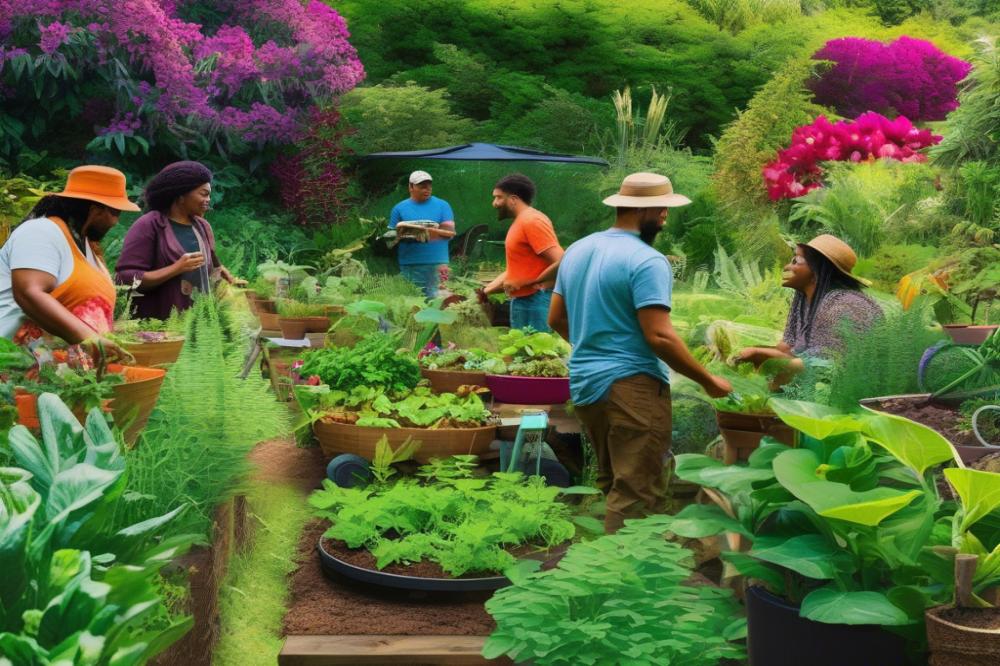The Ethics of Permaculture: Care for Earth, People, and Fair Share
Permaculture is more than just a gardening method; it’s a framework for ethical living. At its core, its ethics encompass the principles of care for the earth, care for people, and setting limits on consumption in the name of fair share. These foundational values guide individuals and communities in creating agricultural systems that respect nature and humanity alike. Embracing these concepts leads to ecological design that prioritizes healthy ecosystems.
Understanding these ethical principles is crucial for gardening practices focused on sustainability. Within this framework, one can find a blend of environmental stewardship and social justice. Each gardening decision resonates far beyond personal gardens; it reflects choices that shape entire communities. When people incorporate permaculture principles, they contribute to a movement that seeks to achieve community resilience and food security.
The idea of care for the earth reminds us to nurture our environment, making it vital for future generations. Regenerative practices enhance soil health and promote biodiversity, ensuring ecosystems flourish rather than diminish. Caring for people extends to building relationships based on respect, equity, and shared resources. Recognizing the intrinsic connection between humans and nature reinforces the importance of land ethics in every community.
Lastly, fair share emphasizes the need for distributing resources equitably. This concept insists that everyone deserves access to what they require for a good life without overexploiting the earth. By advocating for ethical gardening and Sustainable Agriculture, we can build a more just and harmonious world. Understanding and applying these core concepts will shape a brighter, more equitable future for all.
Permaculture Ethics
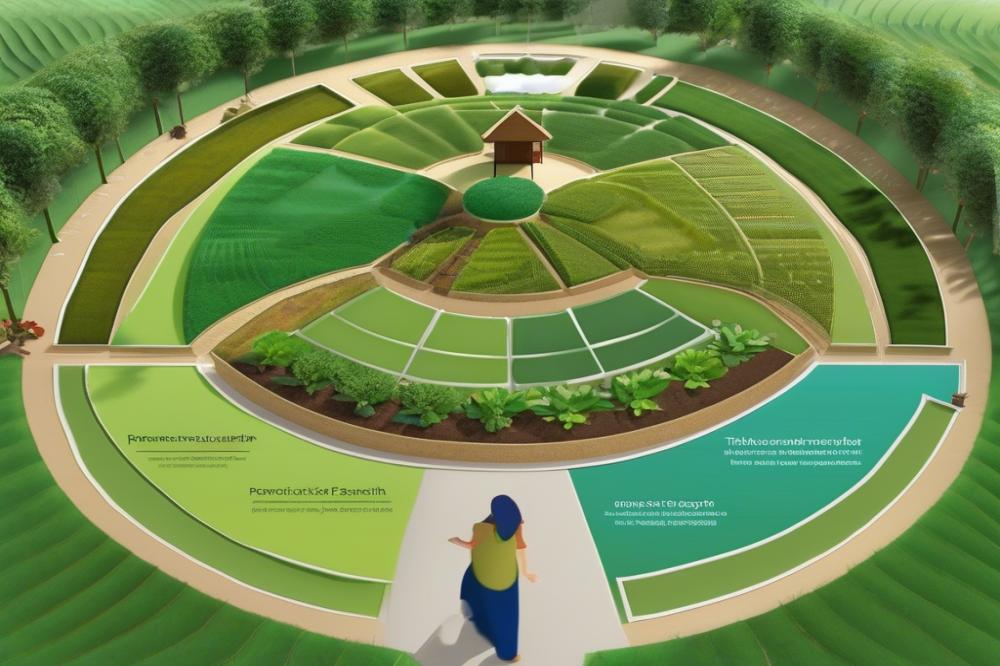

The ethics framework of permaculture revolves around three core principles: caring for the Earth, caring for people, and fair share. Each of these elements plays a crucial role in shaping practices that promote harmony and sustainability. When we talk about caring for the Earth, we emphasize environmental stewardship. This involves using ecological design to create systems that enhance and protect natural ecosystems. The emphasis is on balance and regeneration, not just extraction.
A balance exists between the needs of the planet and the needs of its people. Caring for people means fostering social justice and ensuring that everyone has access to the resources they need. It focuses on building community resilience. This can happen through education, involvement, and collaboration. Communities that support each other can thrive even in challenging times.
Fair share highlights the importance of equitable distribution. Resources should be shared generously, reducing waste and maximizing productivity. This practice also links directly to food security. In ethical gardening, this means growing food not just for oneself but for neighbors and the broader community, ensuring that no one goes hungry.
Within this ethical framework, the principles of permaculture guide the way we design our spaces. Ecological sustainability is at the heart of these principles. Regenerative practices restore and improve ecosystems. They promote biodiversity and resilience, making the landscape healthier over time. These methods contrast sharply with conventional approaches, which often prioritize short-term gains without considering long-term impacts.
Ultimately, Permaculture Ethics compel us to rethink how we interact with our environment and each other. By applying these tenets, we craft gardens and communities that nurture all living beings. This transformation requires commitment and creativity. However, the rewards are immense. Combining care for Earth, people, and equitable sharing yields a sustainable future for all.
Environmental Stewardship
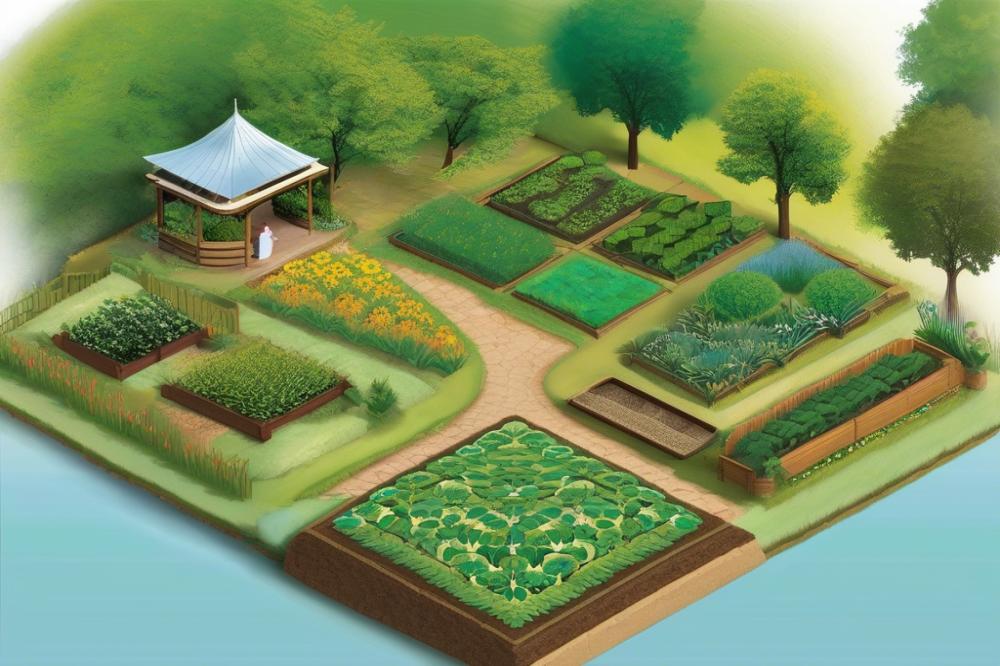

Environmental stewardship involves taking responsibility for how we interact with our planet. It’s about protecting natural resources and ensuring that ecosystems remain healthy. This concept is vital for creating a sustainable future. A healthy environment supports not just wildlife but also human communities. By practicing environmental stewardship, we advocate for the health of our planet.
Permaculture promotes ecological sustainability by integrating natural systems with agricultural practices. It encourages us to design landscapes that are functional and beneficial. One key aspect is the use of permaculture principles, which guide us to work with nature rather than against it. This leads to enhanced biodiversity and resilience in community systems. When we apply these principles, we make our gardens more productive while also caring for the environment.
Various practices enhance soil health and biodiversity. Crop rotation, for instance, helps maintain nutrient levels in the ground. Cover crops can prevent soil erosion, improving its structure. Creating habitats for beneficial insects helps control pests naturally. These regenerative practices are essential for fostering a balance within ecosystems. Organic gardening methods also play a critical role in reducing chemical fertilizers. This, in turn, provides safer food options and enhances food security.
Embracing land ethics is about recognizing the value of every aspect of the environment. We must consider how our actions affect wildlife, plants, and water systems. Ethical gardening practices contribute to this balance. They support not just personal gardens but also the larger community. When communities engage in such efforts, they build resilience against environmental changes.
Moreover, the connection between social justice and environmental care is undeniable. Communities that prioritize environmental stewardship often link to broader social movements. Access to healthy food and clean environments is a right for all. Implementing sustainable practices addresses these needs while fostering community growth. The act of caring for the earth ultimately comes full circle, enriching us all.
Social Justice in Permaculture
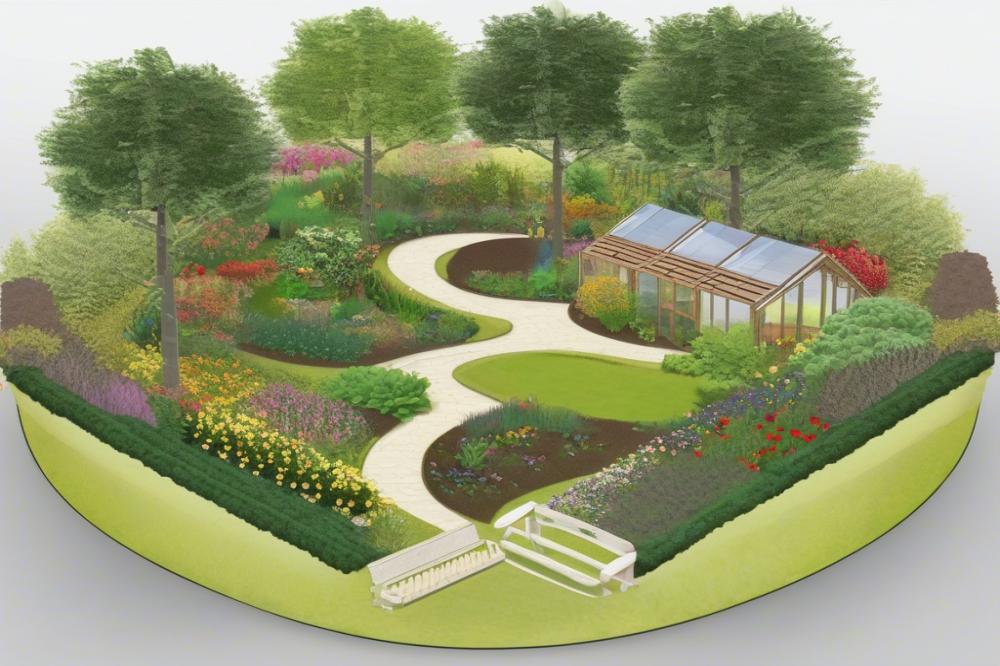

The connection between permaculture principles and social justice is vital. Both concepts emphasize the importance of caring for people and the environment. When you design a garden with ecological design in mind, you are actively promoting a fairer world. Sustainable practices can change lives. They create opportunities for those who have been marginalized.
Marginalized communities often face challenges such as poverty and food insecurity. Empowering these groups can lead to community resilience. Through regenerative practices, these communities can grow their own food. This not only improves food security but also fosters a sense of pride and independence. Ethical gardening provides a pathway to reclaiming lost agricultural skills.
Food distribution is a significant issue today. Many areas lack access to healthy, fresh options. The fair share principle is essential in addressing these disparities. It promotes equity and ensures everyone has access to nourishment. By redistributing resources, we can help those who struggle to find adequate food sources. Ensuring fairness in food access contributes to a stronger social fabric.
Land ethics underline the responsibility we have to our environment. Stewarding the land properly reflects a commitment to ecological sustainability. When individuals take part in permaculture ethics, they participate in a broader movement toward social justice. This not only benefits the planet but also uplifts people in need. Change begins at the grassroots level and every effort counts.
Ultimately, a shift in practices can lead to powerful transformations. The focus must remain on including everyone, particularly those who are often overlooked. A just society fosters sustainability. By working together, we can create spaces where all community members thrive. The integration of social justice into permaculture paves the way for a brighter, more equitable future.
Community Resilience
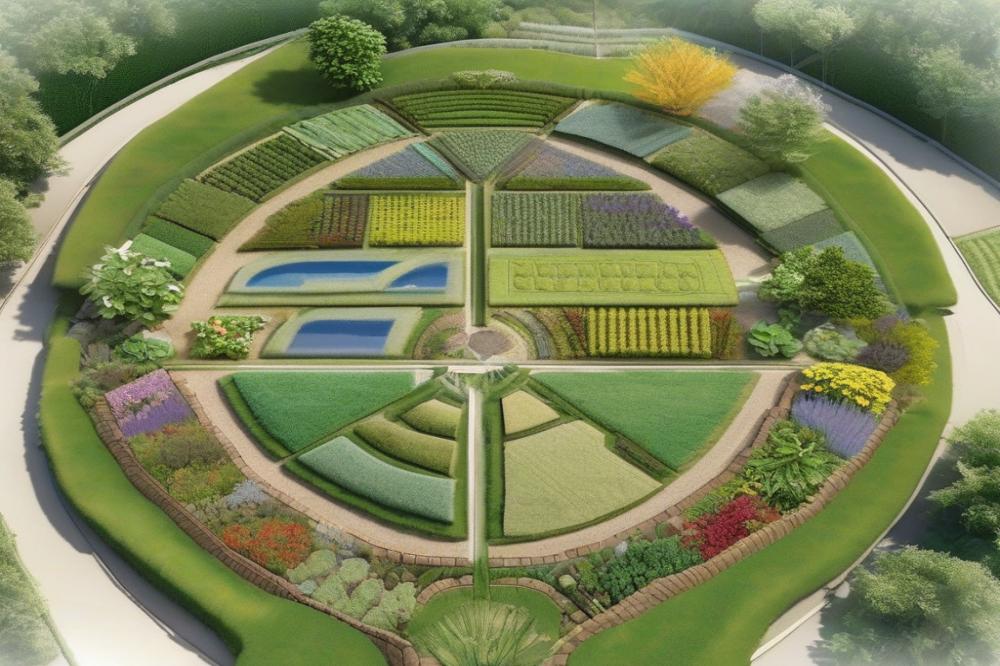

Community resilience plays a vital role in permaculture gardening. A strong community can better withstand challenges, such as economic downturns or natural disasters. When people come together, they create a support system that benefits everyone involved. People who grow food can share their resources, skills, and knowledge in an empowering way.
Regenerative practices are essential for enhancing local food security. By practicing ecological design, communities cultivate gardens that produce healthy food while nourishing the soil. This not only feeds families but also builds a connection between individuals and their environment. Communities that prioritize food security foster social justice through equal access to nutritious options.
A network for knowledge sharing is critical. Workshops, community gardens, and online platforms enable individuals to exchange gardening tips, recipes, and sustainable living ideas. Encouraging this collaboration strengthens community ties and promotes environmental stewardship. Members can learn the principles of permaculture while supporting one another’s growth.
Many individuals feel empowered by working together. They build a sense of belonging that can lead to greater happiness and well-being. Ethical gardening practices contribute to healthier neighborhoods and create spaces for all to enjoy. These shared experiences help cultivate a culture of sustainability.
Ultimately, community resilience shines through in times of need. When groups unite, they face challenges with creativity and resourcefulness. This collective spirit leads to a more sustainable future, not only for the community but for the entire planet. By following the principles of land ethics, everyone has a role in preserving our Earth.
Land Ethics and Ecological Sustainability
Understanding Land Ethics in the Context of Permaculture
Land ethics helps define how we treat the land around us. In permaculture, this concept is vital. It calls for a deep respect for nature and its systems. People must recognize their role as caretakers. This means understanding the interconnectedness of all living things. Impacting one part of an ecosystem can ripple through the whole community. By applying permaculture principles, we prioritize care for the environment and social justice.
Relationship Between Land Stewardship and Long-Term Sustainability
Land stewardship plays a crucial role in ensuring ecological sustainability. Responsible management of land can lead to healthier ecosystems. Practices that protect native species and their habitats contribute to this goal. Long-term sustainability arises from these intentional actions. We must remember that every decision affects future generations. Keeping soil healthy, maintaining biodiversity, and respecting water sources are all part of this effort. When we tend to the land ethically, we promote community resilience and food security for all.
Examples of Ethical Gardening Practices that Restore Ecological Balance
Many gardens can serve as living examples of regenerative practices. For instance, planting native flowers helps attract beneficial insects. Composting organic waste returns nutrients to the soil. These actions support both the environment and our communities. Another example is using cover crops. Such practices protect the soil from erosion while adding nutrients. Integrating diverse plants not only improves health but also encourages biodiversity. These efforts create a balanced ecosystem that thrives over time. Ethical gardening goes beyond merely growing food; it nurtures the planet itself.

